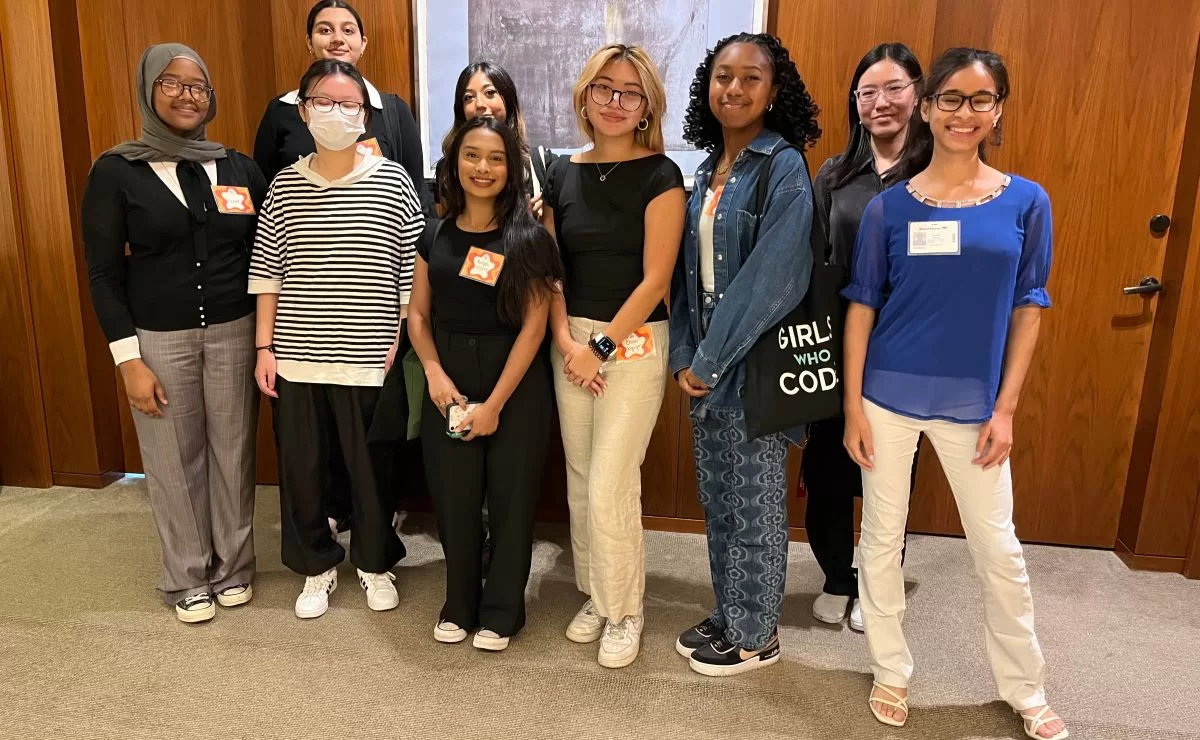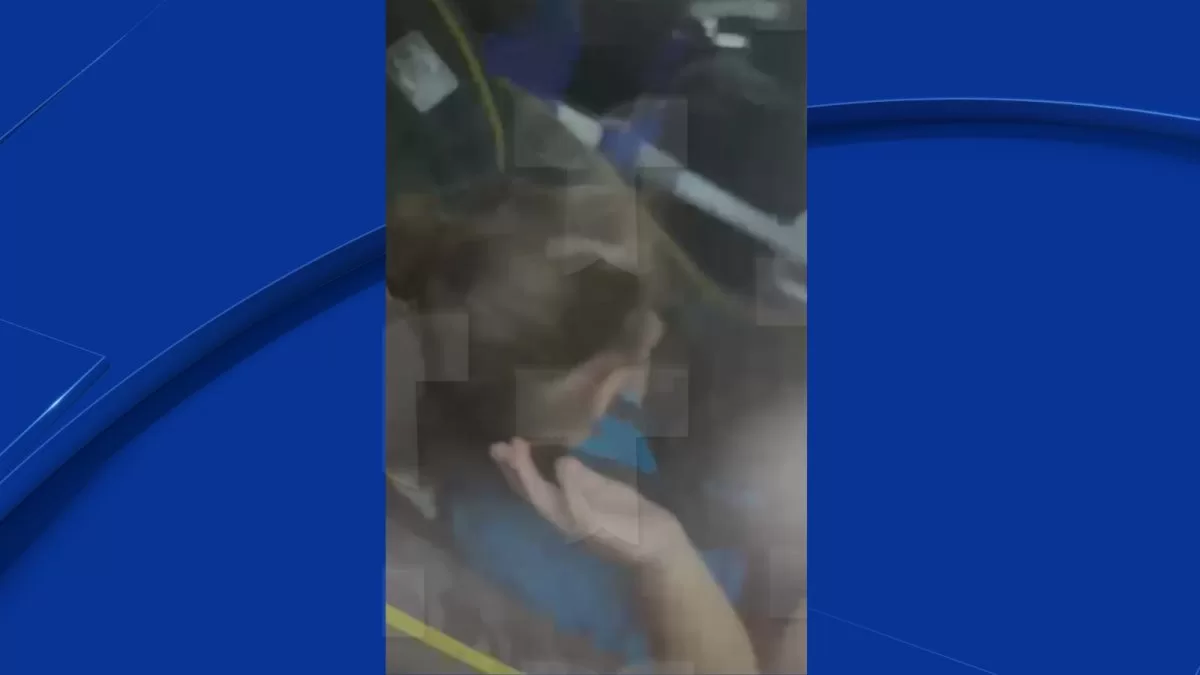The presence of women in jobs within the IT sector is minimal and if we add to this that African-Americans, Hispanics and low-income minorities in general are underrepresented in this segment of the job market, the outlook is not flattering.
Girls Who Code (GWC) or in Spanish Chicas Que Programan, is the organization that, with a focus on privileging diversity, equity and inclusion, seeks to reverse the gender gap, making programming education accessible and flexible for students. women of all backgrounds, including those historically excluded groups.
Breaking down historical barriers
“We are committed to continuing this program to ensure that girls and young women across the country are thriving,” said Becky Staton, vice president of workforce strategy at Bank of America and national Girls Who Code leader. .
The executive recognized that historical and institutional barriers, particularly racial bias and discrimination, play a role in the growing gender gap in computer science and who has access to opportunities in these fields.
Be brave, not perfect
Daniella Santana, who chairs GWC in New York, said the organization’s motto “Be Brave, Not Perfect” calls for inspiring women.
“Let them know that they can achieve a career in technology. The goal is to empower them in that they have space in an area where men are the majority”, Daniela insists.
GWC focuses its work not only on gender diversity but also on young women who are historically underrepresented or multiracial communities with low-income backgrounds, as a result of which they have had a lack of exposure to or access to computing.
technology leaders
Meanwhile Daniel Voloch, also a member of the GWC team, stressed that it is crucial that women and non-binary students have the opportunity to study computer science and become technology leaders.
“In New York the program has more than 300 clubs that work after school hours and there students learn how to use computers. On the other hand, GWC strives to strengthen the concepts of sisterhood and community, of Hispanic and Latin American women who are already working in the field of technology”, says Voloch.
creating opportunities
The Girls Who Code organization was founded in 2012. It offers multi-level, year-round programs globally for girls and adolescents to inspire, educate, and equip them with the computer skills they need to seize the opportunities of the 21st century.
GWC alumnae now attending universities are majoring in computer science and related fields at 15 times the US average.
In addition, the organization promotes the Clubs Program and Code at Home programs. The first is an after-school initiative for girls in grades 3-12 to learn computer science, facilitated with community collaboration and volunteer support; and the second consists of free computer activities for students, educators and parents.
Empowering women in tech jobs
Historically men have prevailed in the area of technology. In 1995, 37% of computer workers in the United States were women and today, it is only 24%, that percentage will continue to decrease if immediate corrective measures are not taken.
Girls Who Code’s goal is to change this reality by implementing this free after-school program for girls and non-binary people ages 15-17 to educate themselves on computer skills.
The organization’s leaders forecast that by 2030 they could narrow the disparity in new tech jobs.
On Tuesday, July 25, 60 teens in their final two years at local high schools kicked off the two-week Summer Immersion Program designed to foster relationships with tech talent in their area. Through mentoring groups, hands-on tech activities, and deep-dive circles, students connected with local tech volunteers in small groups, heard about Bank of America employees’ tech experiences, and asked questions about the tech industry.
It’s a challenge I like
It is the first thing that Sara Shahab Díaz says, when telling her experience on how she began her foray into the field of technology.
“I started programming very basic two years ago at my school. It is difficult to find teachers who can teach you technology and I could say that what I have learned so far has been on my own”, says this high school student who is in grade 11.
Sara, whose mother is Spanish and her father Pakistani, remembers that many times she felt alone because she was a woman and because of her ancestry.
“In my area there is no community for people like me. I searched the internet and luckily I found Girls Who Code, because my interest is to improve and expand my programming knowledge.”
Adds the young woman who lives in Princeton, New Jersey – who wants to study systems engineering in the future – that it is extraordinary that this organization promotes a fellowship where they can relate to people who can help them and aimed at women of all origins and races.

Cynthia Pintado is excited to start her virtual classes. /David Ramirez
In search of a dream
Cynthia Pintado’s story is no different. She dreams of being a professional in a technology specialty to seek better opportunities and living conditions with her family.
“Since I was little I liked everything that is technology. At school I have been involved in this area creating games and I have always wanted to find a place where I can participate and learn more about programming and computer systems”, says this young woman whose parents are Ecuadorian immigrants.
Cynthia is in her last year of high school. She is one of the girls selected by Girls Who Code in the Summer Immersion Program (SIP).
“I am excited to start my virtual classes because I feel that the promoters of the program are giving us a great help,” says Cynthia, who lives in Sleepy Hallow, Westchester County.
fascination with computers
Ana Bornstein’s face lights up when she narrates that from the 8th. grade she is in her school’s programming club.
“The world of computers fascinates me. It really interests me a lot and although I often do it virtually, I really enjoy doing it”, says this daughter of Argentine immigrants, who lives in East Brunswick, New Jersey.
Ana remembers that at her school there were very few women in programming classes.
“My first year in the class there were only two girls. This group is very important to me because I feel that it opens up more opportunities for women in this area,” she says, referring to the SIP program.
Ana adds that it is still early to define what she wants to be in the future, but she assures that it will have to do with technology.
creating opportunities
The Girls Who Code organization was founded in 2012. It offers multi-level, year-round programs globally for girls and adolescents to inspire, educate, and equip them with the computer skills they need to seize the opportunities of the 21st century.
GWC has reached 500 million people through its work and 300,000 girls through its programming. GWC alumnae now attending universities are majoring in computer science and related fields at 15 times the US average.
In addition, the organization promotes the Clubs Program and Code at Home programs. The first is an extracurricular initiative for 3rd grade girls. grades to 12th grade to learn computer science, facilitated with the collaboration of the community and the support of volunteers; and the second consists of free computer activities for students, educators and parents.
Follow the organization on social media @GirlsWhoCode.







